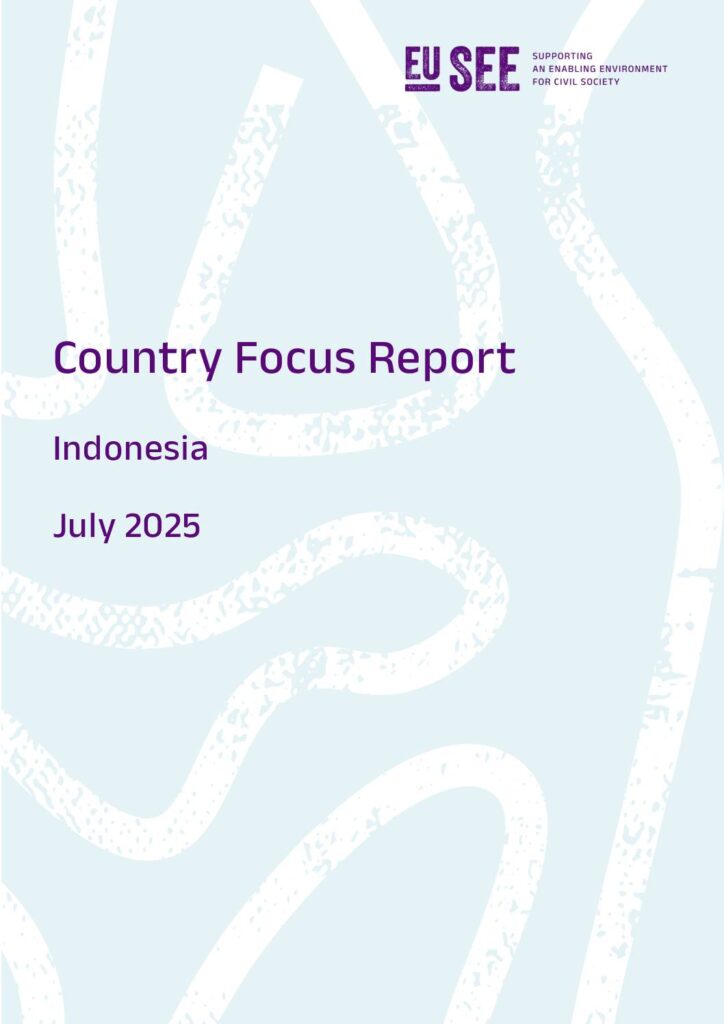Indonesia’s enabling environment for civil society remains obstructed amid democratic backsliding, with increasing authoritarian tendencies, shrinking civic space, and erosion of civil liberties since the 2024 election of Prabowo Subianto, which raised concerns over power centralization. Civil society organizations (CSOs) face legal, bureaucratic, and security challenges, including harassment, arbitrary arrests, and digital repression like doxing and surveillance.
Key deteriorations include intensified restrictions under the Electronic Information and Transactions (ITE) Law and Societal Organisation Law, used to criminalize dissent and dissolve critical NGOs. Funding access has worsened, particularly for grassroots groups reliant on international donors, amid government scrutiny and Indonesia’s OECD accession limiting aid. Internal CSO challenges, such as reliance on legalistic strategies and limited grassroots engagement, further weaken advocacy.
Key recommendations include:
- The issuance of a Presidential Regulation to establish a National CSO Endowment Fund.
- Strengthen protections against Strategic Lawsuits Against Public Participation (SLAPPs) and arbitrary dissolution by revising repressive laws, ensuring due process, and establishing independent oversight bodies to monitor threats and provide accessible legal safeguards for CSOs.
- Institutionalize meaningful CSO-government consultations in policy-making by creating structured mechanisms across planning, implementation, and evaluation phases, requiring responsive reports on how inputs are integrated, and facilitating community-level forums to represent marginalized groups.
- Build CSO capacity through targeted training in grassroots mobilization, digital literacy, cybersecurity, and evidence-based communication to foster resilient coalitions, counter disinformation, and promote sustained citizen participation aligned with local needs.
Enabling principles scores

